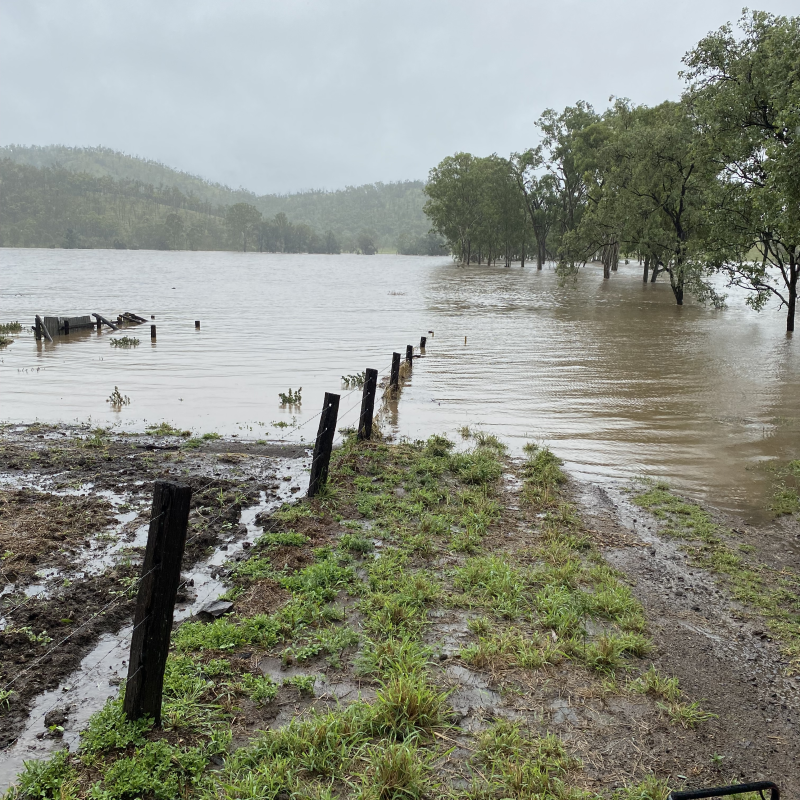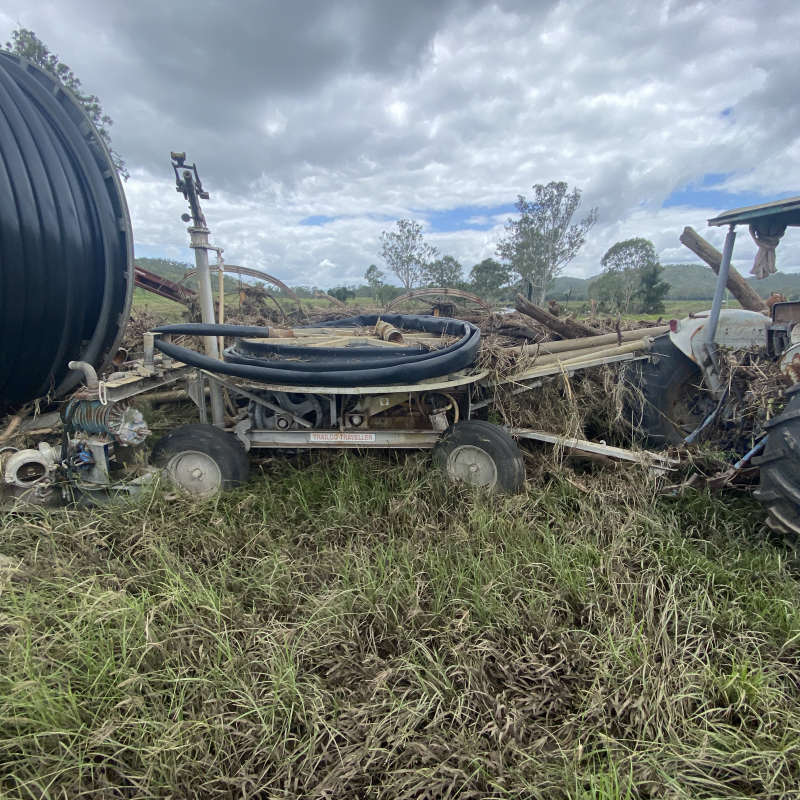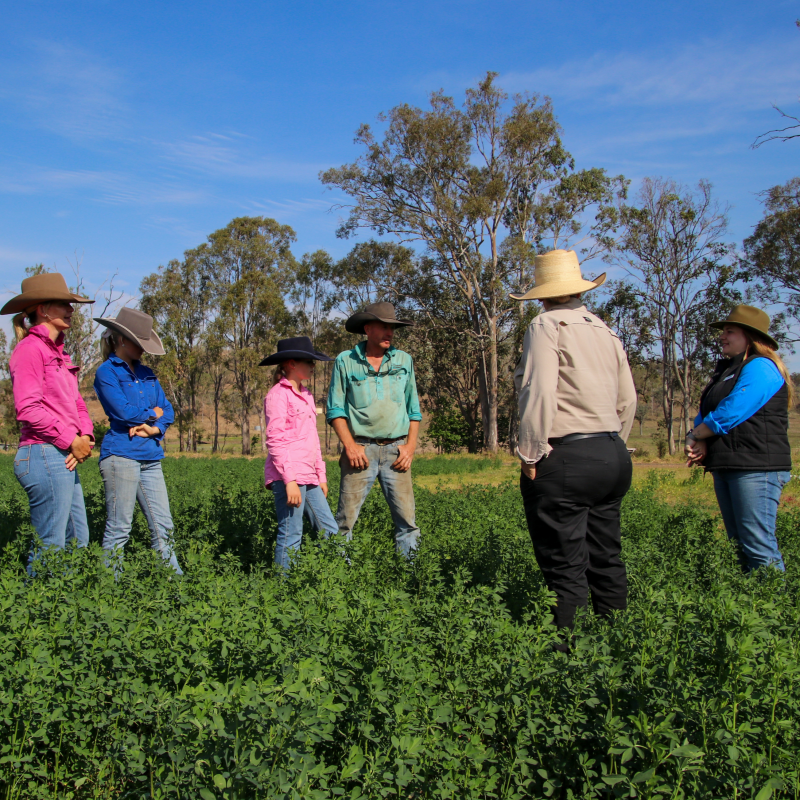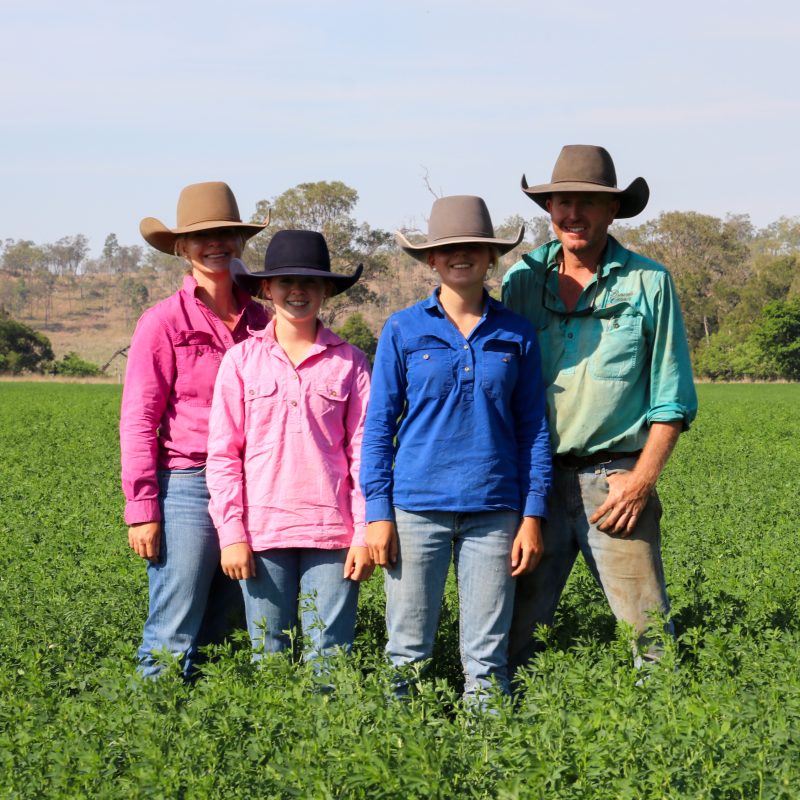Disaster management planning helps future-proof farm against severe weather
On 7 January 2022 the remnants of ex-Tropical Cyclone Seth crossed the south-east Queensland coast near Hervey Bay, producing extreme rainfall in the area.
Daily falls exceeding 400 mm caused flooding across the region as the low moved over land.
At Booubyjan on the western fringes of Gympie, primary producers Dan and Gemma Van Itallie felt the full force of catastrophic flooding.
The Van Itallie’s 1,200 acre cropping and cattle property was heavily impacted after a deluge dumped almost half a metre of rain in one night.
Cattle yards, hay sheds and machinery were inundated, cows and calves were taken in the floodwater, and more than 800 hay bales were lost when the shed they were stored in was destroyed by the raging torrent.
Ironically, given the inundation, the Van Itallie’s beef herd was left without water as the bore that supplied the watering system for the animals was lost and it was too dangerous to leave cattle on the flats by the creek.
Dan and Gemma were left with a shocking damages bill, a situation repeated for many producers across south-east Queensland after the region suffered multiple flooding events in early-2022.
But help was at hand from a $2.5 million initiative developed by the Queensland Government to assist primary producers impacted by the floods.
Jointly funded by Australian and Queensland Governments through the Disaster Recovery Funding Arrangements (DRFA), the Industry Recovery and Resilience Officer (IRRO) Program was established in response to the devastating 2021-22 disaster season.
The program was overseen by the Queensland Reconstruction Authority (QRA) and delivered by the Queensland Department of Primary Industries (DPI) to primary producers in 23 local government areas affected by the floods.
IRROs were employed to help producers not just recover from the initial impacts of the events, but also to build resilience to the impact of cumulative flood events and better understand the risk and impact of flood to their farm businesses.
With the assistance of IRROs, the Van Itallies developed a flood management plan to implement effective strategies, preventative measures and action plans for future flood events, based on the principles of prevention, preparedness, response and recovery.
A disaster assistance grant allowed Dan and Gemma to seek fit-for-purpose on-farm technical advice to assist the rebuild they faced in the aftermath of the catastrophic flood.
Through the IRRO program, the Van Itallies have formed a robust holistic farm management plan, complete with goals, business plans and action plans covering all areas of farm management.
This proactive approach to building both environmental and business resilience will pay real and lasting dividends during future natural disaster events.
For more information about the IRRO program visit www.dpi.qld.gov.au.



